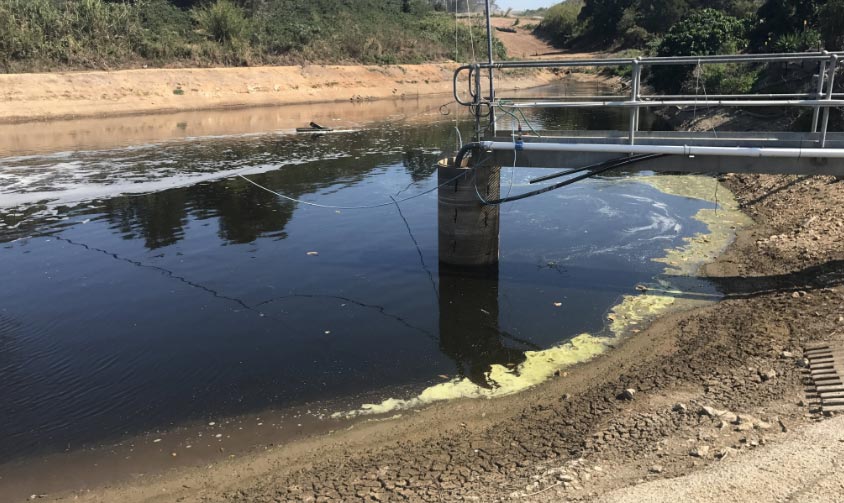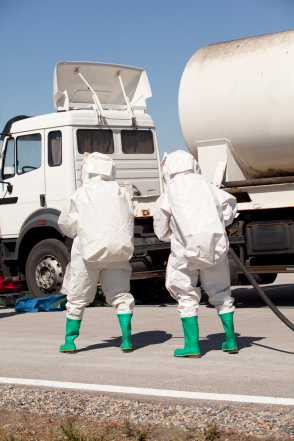Recognizing the Comprehensive Process of Fluid Garbage Disposal: Ideal Practices and Environmental Influence Considerations
The monitoring of fluid waste disposal is a diverse issue that needs an extensive understanding of numerous best methods and their associated ecological effects. From the kinds of fluid waste produced to the techniques employed for collection, treatment, and final disposal, each step plays an essential role in guarding ecological communities and public health. As governing requirements evolve and innovation developments, the discussion around these processes ends up being progressively significant. What implications do these adjustments hold for future sustainability initiatives, and exactly how can stakeholders make sure that they are sufficiently attended to?
Sorts Of Liquid Waste
Recognizing the numerous kinds of fluid waste is essential for effective management and disposal methods. Fluid waste can be broadly categorized into numerous kinds, each requiring one-of-a-kind handling and treatment techniques.
Industrial fluid waste typically has unsafe products, consisting of heavy steels, solvents, and chemicals, created during manufacturing processes. These wastes demand rigorous regulatory conformity to safeguard human wellness and the atmosphere. Residential liquid waste primarily refers to wastewater generated from houses, consisting of sewage and greywater, which, although less hazardous, can still posture considerable threats if poorly taken care of.
Agricultural fluid waste, including runoff from farms, often consists of fertilizers and chemicals that can bring about environmental deterioration otherwise treated adequately. Clinical liquid waste, produced from medical care centers, consists of polluted liquids such as physical liquids and chemicals, requiring specialized disposal methods to stop infection and ecological contamination.
Lastly, oil and grease waste, generally generated by dining establishments and automotive industries, can create extreme blockages in sewage system systems if not handled appropriately. Understanding these categories helps with targeted methods for treatment, conformity with guidelines, and effective disposal techniques, eventually promoting ecological sustainability and public health safety.

Collection Approaches
Effective collection techniques are critical for the proper management of liquid waste, ensuring that it is gathered safely and successfully before therapy or disposal. Various methods are utilized relying on the sort of liquid waste generated, the quantity, and the details qualities of the waste.
One usual technique is the usage of committed collection storage tanks or sumps, which are designed to catch liquid waste at the source. These systems frequently integrate pumps that facilitate the transfer of waste to bigger storage space containers or treatment facilities. Furthermore, mobile collection devices furnished with vacuum cleaner innovation are used in circumstances where waste is created intermittently or in hard-to-reach areas.
For industrial settings, closed-loop systems can efficiently minimize leakages and spills, permitting the recuperation and reuse of fluid waste. It is also important to train personnel on proper collection protocols to alleviate dangers related to hazardous substances.
Additionally, carrying out routine upkeep schedules for collection devices makes certain ideal efficiency and security. The integration of innovative tracking systems can boost collection performance by giving real-time information on waste degrees and possible dangers. Generally, efficient collection techniques are fundamental to sustainable liquid waste administration techniques.
Therapy Processes
Treatment procedures play an essential role in the monitoring of liquid waste, transforming possibly hazardous materials into secure effluents or multiple-use resources - liquid waste disposal. These procedures can be generally categorized into physical, chemical, and organic approaches, each tailored to attend to particular impurities present in the waste stream
Physical treatment techniques, such as sedimentation and filtration, work by removing put on hold solids and particulate matter. These strategies are usually the very first step in the therapy chain, properly lowering the lots on subsequent procedures. Chemical therapies involve using reagents to reduce the effects of dangerous compounds, speed up heavy steels, or oxidize organic contaminants, thus enhancing the safety of the effluent.
Biological therapy procedures, consisting of turned on sludge systems and anaerobic food digestion, maximize the natural capacities of bacteria to break down organic matter. These approaches are specifically efficient for wastewater having naturally degradable contaminants. Advanced treatment modern technologies, such as membrane filtering and advanced oxidation procedures, are progressively utilized to attain greater degrees of purification.
Incorporating a mix of these treatment methods not just makes sure compliance with regulative requirements yet also advertises ecological sustainability by recouping valuable resources from liquid waste.
Disposal Options
Exactly how can companies make certain the accountable and risk-free disposal of liquid waste? Efficient disposal options are critical for safeguarding public health and the setting. The key techniques consist of land disposal, therapy, and incineration complied with by discharge right into metropolitan wastewater systems.
Land disposal involves the cautious containment of fluid waste in assigned landfills, ensuring that it does not seep into bordering dirt or water. Incineration, on the other hand, topics liquid waste to heats, converting it into ash and gases, which require appropriate filtration to decrease discharges. This technique appropriates for hazardous wastes that can not be dealt with with standard methods.
In instances where fluid waste can be treated, companies might go with chemical or biological treatment procedures to neutralize hazardous elements prior to discharging the treated effluent into municipal systems. This route typically straightens with regulative needs, guaranteeing that the effluent fulfills safety and security requirements.
Eventually, companies should carry out extensive assessments of each disposal alternative to establish its viability, taking into consideration factors such as waste composition, regulatory conformity, and possible risks to wellness and the setting. By selecting proper disposal methods, services can add to a liable waste monitoring method.
Environmental Effect
The environmental impact of liquid garbage disposal is a crucial factor to consider for organizations looking for to minimize their eco-friendly footprint. Incorrect disposal approaches can bring about significant contamination of water learn this here now sources, dirt deterioration, and unfavorable results check this on neighborhood ecological communities. For instance, unsafe liquids can seep right into groundwater, presenting dangers to drinking water products and water life. Additionally, the discharge of without treatment or improperly treated waste into surface area waters can cause eutrophication, bring about oxygen exhaustion and the subsequent death of fish and various other microorganisms.

To minimize these effects, organizations should take on best practices such as executing rigorous waste treatment processes, advertising recycling and reuse, and sticking to regulatory standards. By taking a positive strategy to fluid waste monitoring, entities can considerably lower their ecological impact while supporting lasting growth objectives. Eventually, a thorough understanding of the ecological effects associated with fluid garbage disposal is necessary for notified decision-making and liable stewardship of natural deposits.
Final Thought
Efficient management of liquid waste is vital for guarding ecological stability and public health. By adopting finest techniques in disposal, treatment, and collection, alongside adherence to regulatory criteria, the potential for harmful contamination of communities can be significantly reduced. Continuous advancements in modern technology and processes add to sustainable waste administration initiatives. Inevitably, a comprehensive understanding of liquid garbage disposal not only reduces ecological impacts but additionally fosters a dedication to responsible resource administration and environmental stewardship.
The management of fluid waste disposal is a multifaceted issue that requires a complete understanding of various best practices and their connected environmental influences. From the types of liquid waste generated to the methods utilized for collection, therapy, and last disposal, each step plays a critical function in protecting ecosystems and public health.The ecological impact of liquid waste disposal is useful link a crucial consideration for organizations looking for to minimize their ecological impact. Ultimately, a detailed understanding of the environmental influences linked with liquid waste disposal is important for notified decision-making and liable stewardship of all-natural sources.
Eventually, a detailed understanding of liquid waste disposal not only minimizes ecological effects yet additionally cultivates a dedication to accountable source administration and environmental stewardship.